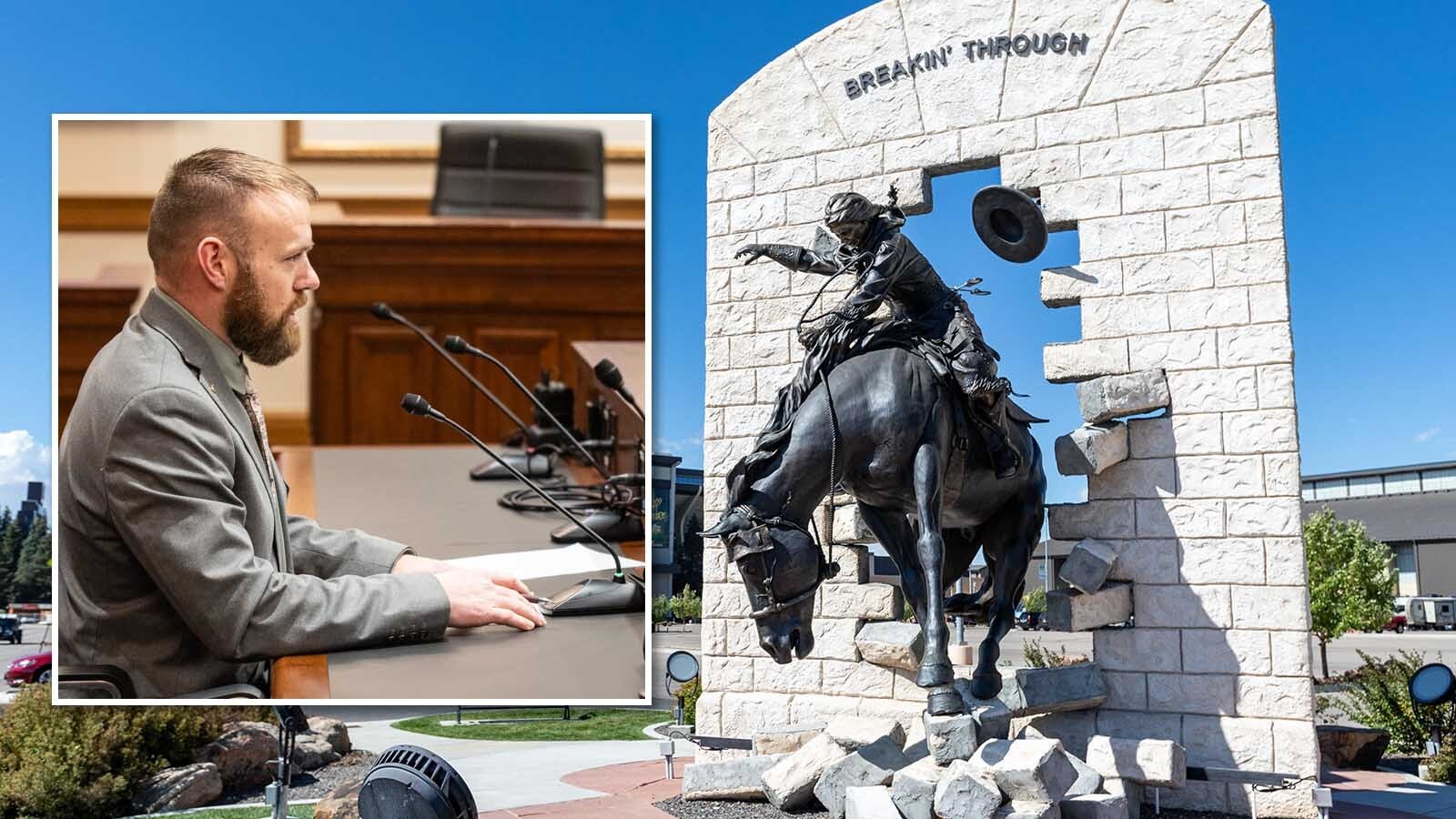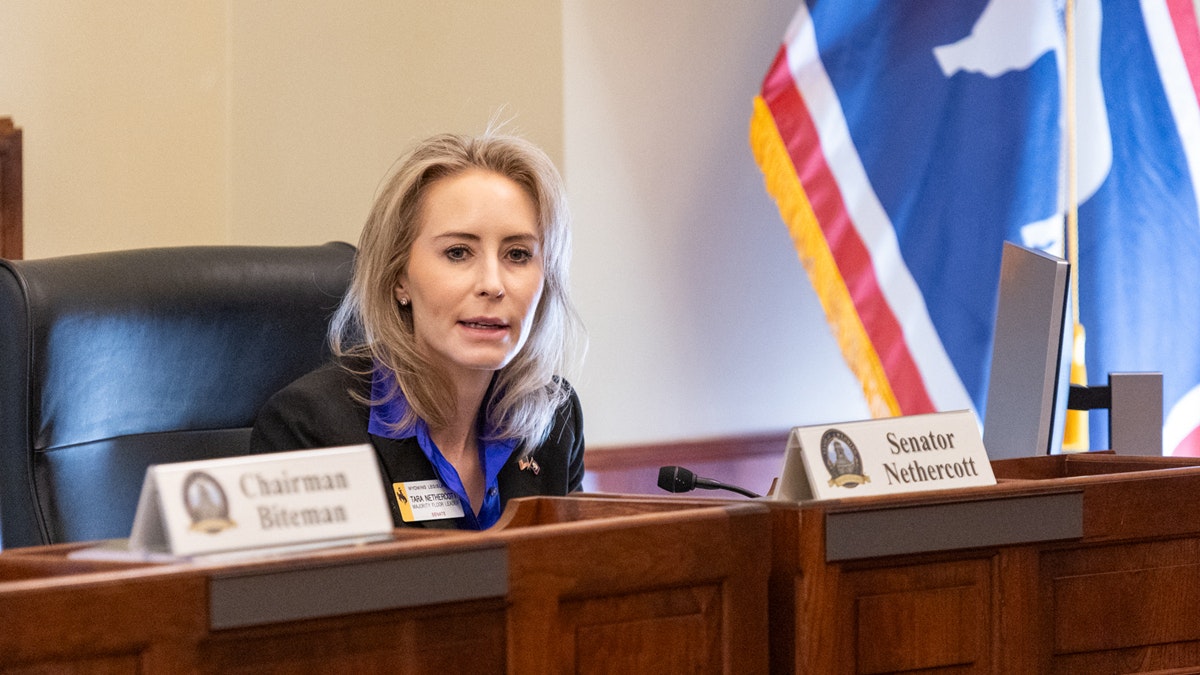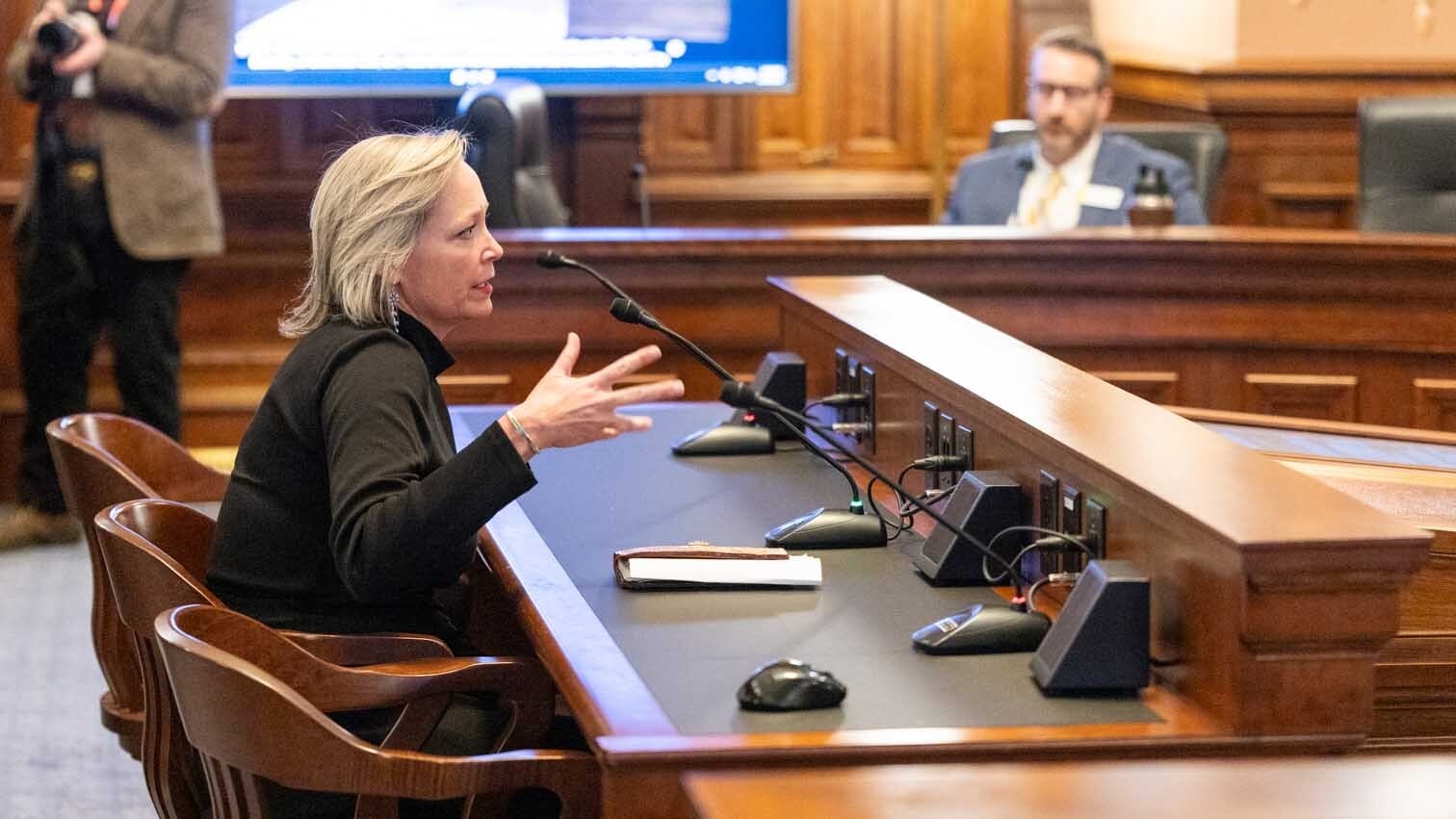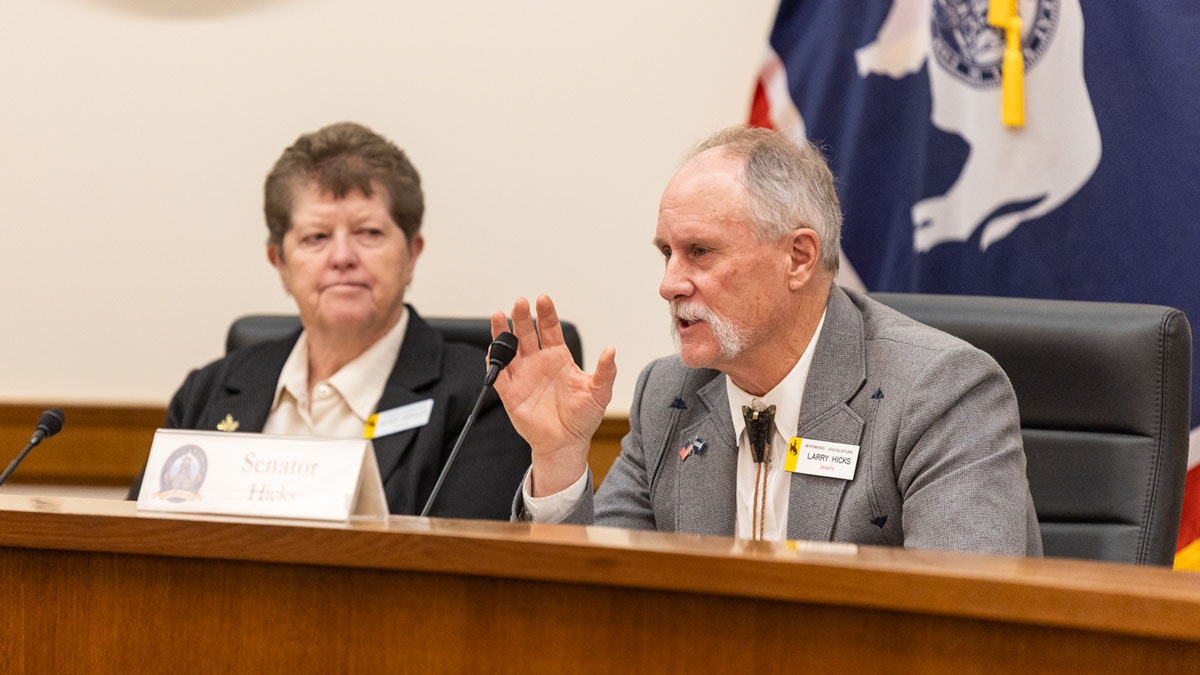The Teton County Commission has approved regulations for development in the northern South Park area near Jackson — a major first step in installing a new neighborhood and affordable housing for which the region’s workforce has been pleading for years.
The 4-1 vote Tuesday to approve land-development regulations could authorize up to 1,437 homes in the northern South Park region over the coming decades.
One portion of that land belongs to the Gill family, which has pledged to donate 45 acres to meet the county’s housing needs. Another portion of the land belongs to the Lockhart family, which said last month via a spokesman that it hopes to keep the land in ranching until it needs to develop it.
The newly approved land-development regulations stipulate that 70% of the coming units will be deed-restricted housing, meaning the homes’ resale prices will be capped to remain largely stagnant. That’s in contrast to the other 30% of the units, which can be free-market homes and not price restricted.
The new rules contain language to halt free-market construction if the deed-restricted projects aren’t keeping pace.
A Big First Step
Commissioner Wes Gardner voiced a concern during the Tuesday meeting about whether the private sector and philanthropic community would keep pace with the deed-restricted housing requirements.
“There’s no real assurances on the side of the community, other than faith in our partners,” he said.
Nonprofit groups Teton Habitat (a local arm of Habitat for Humanity) and the Community Housing Trust of Jackson Hole, conversely, said they’d be able to raise money to build affordable units on the land.
After the vote, Teton County philanthropists Wayne and Molly Hughes, of the Hughes Charitable Foundation, announced a $15 million pledge to build Habitat homes on the Gill side of the project, Molly Hughes told Cowboy State Daily on Friday.
They were elated after the vote and surprised it broke 4-1 when the most they’d dared to hope for was a 3-2 win, she added.
A press release by the foundation says the donation is meant to spark more fundraising toward the nonprofit developers and embolden the philanthropic community.
“The commissioners’ leadership comes at an important time, following years of work and study for people in need,” said HCF board chairman Wayne Hughes.
Now it falls to developers to create master plans for the new neighborhood and apply for development.
Gardner voted for the project at the end of Tuesday’s meeting, as did all other commissioners except for Commission Chair Luther Propst, who urged the committee to spend more time on the regulations before accepting development proposals.
“This is the most significant, the most complicated, decision this board will make and perhaps the most significant land use decision in the history of this county,” said Propst. “There are several concerns we acknowledge need clarification. … It’s not ready.”
Propst did not respond to a Thursday voicemail request for additional comment.
The Concerns
The commission heard a variety of concerns at a Feb. 27 public-comment meeting, ranging from aesthetics to wildlife permeability to traffic.
“Please be very mindful of the rural quality of this town,” said Jeff Baldwin, a permanent resident of the South Park area. “There’s no amount of planning that can hide 1,800 homes on 200 acres.”
Baldwin was speaking to the potential allowance in the rules for 1,800 units, which the commission was still contemplating in February but which has now been slashed to about 1,400 units.
Others urged the commission to amend the regulations so the government could exercise more control over the project as it progresses. Some were concerned that the allowed portion of free-market homes would only bring more consumers in need of more workers and exacerbate the workforce housing shortage rather than solve it.
‘Not The Same As When We Moved Here’
Project proponents countered, saying workers already commute to Jackson daily and clog up incoming traffic, and that the portion of workforce housing would help them settle into the community.
“Without this housing opportunity we won’t be able to continue to show up to make this happen,” local volunteer the Rev. Jason Bruni told the committee, after speaking of his and others’ myriad coaching, teaching, mentoring and service efforts. “This is my last chance to continue to stay in town and raise my son here.”
Bruni said Teton Habitat has raised $1.45 million over the past four months and is prepared to do what’s necessary to make good on its house-building plans.
Steve Fralin, who said he owns a Habitat home, was faced 10 years ago with having to leave the valley because of the rent prices.
He’s now been there 25 years.
“(There have been) comments about loss of character. It’s already lost: this town is not the same as what we moved here to see and live and grow in,” said Fralin. “But because of Habitat my kids are doing great in school, making friends, accomplishing things.”
His daughter was selected to represent Wyoming in the World Special Olympics, he added.
Grandeur, And Markets
Teton County contains some of the most expensive homes in the nation. For daily-grind professionals like nurses and teachers, the pricing climate often means they’re commuting from other towns in Idaho and Wyoming, and can’t raise their families where they work.
Recognizing the crisis, town and county land authorities have implemented land rules to deed restrict several homes.
Proponents of this system call it a vital opportunity for starter homes and the workforce. Critics say expanding deed restriction too much chokes off the free-market supply and drives up market home pricing even more.
Editor’s note: Wayne Hughes is the publisher of Cowboy State Daily.
Clair McFarland can be reached at clair@cowboystatedaily.com.





